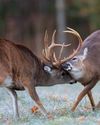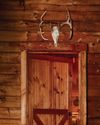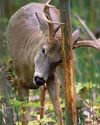Fishermen have proposed a way to restore the Everglades and South Florida rivers, but will their idea ever become a reality?

BLACK, TOXIC WATER was flowing into the Caloo sa hatchee and St. Lucie Rivers. Following the rains of Hurricane Irma in Sept. 2017, the U.S. Army Corps of Engineers began discharging highly polluted water—billions of gallons of it— from Lake Okee cho bee into the South Florida rivers to prevent the flooding of agricultural land to the south, but at the same time poisoning some of the richest gamefish habitat in the world.
This was hardly a first.
In the summer of 2016, the Corps had discharged more than 200 billion gallons of water from Lake Okeechobee, setting off a chain of catastrophes. A 239square- mile bloom of toxic algae had been spreading across the lake all summer, and when that water was released, the Caloo sa hatchee and St. Lucie were flooded with it. Beaches were closed. People fell ill. Fish died. Officials advised people to stay away from the very waters that had made this part of Florida one of the nation’s most famous fishing destinations. It was the worst the pollution had ever been, but the discharges happen every rainy year in South Florida. So when the black water poured into the rivers again this past September, people knew what to expect.
“It’s economic free fall,” a St. Lucie fishing guide told me on a recent trip to Florida. Water dumped from Lake Okeechobee had devastated the local fishing and tourism industries and killed the St. Lucie’s seagrass beds— nurseries for grouper, snapper, seatrout, redfish, and more. The damming of Lake Okeechobee necessitates these discharges and cuts off the Everglades and Florida Bay, one of the world’s greatest saltwater fisheries, from a fresh flow of water.
Esta historia es de la edición December 2017 - January 2018 de Field & Stream.
Comience su prueba gratuita de Magzter GOLD de 7 días para acceder a miles de historias premium seleccionadas y a más de 9,000 revistas y periódicos.
Ya eres suscriptor ? Conectar
Esta historia es de la edición December 2017 - January 2018 de Field & Stream.
Comience su prueba gratuita de Magzter GOLD de 7 días para acceder a miles de historias premium seleccionadas y a más de 9,000 revistas y periódicos.
Ya eres suscriptor? Conectar
LIVING THE DREAM
After the author arrives in Maine’s fabled North Woods with a moose tag in his pocket, an adventure he’s been wanting to take his entire hunting life, reality sets in, and he learns a valuable lesson: Be careful what you wish for
Get the Drift
How to make an accurate windage call under pressure

First Sit
An icebreaker outing in a pristine spot produces the rut hunt of a lifetime
A Local Haunt
The author finds a sense of place in an overlooked creek, close to home

A Hop and a Pump
Jump-shooting rabbits with classic upland guns is about as good a time as you can have in the outdoors

Welcome TO camp
Is there any place better than a good hunting camp? It has everything: great food, games and pranks, and of course, hunting. Shoot, we don’t even mind going to camp for grueling work days in the summer. Here, our contributors share their favorite stories, traditions, and lessons learned from camps they’ve shared. So come on in and join us. The door’s open.
THE DEERSLAYERS
Before you even claim a bunk, you need to eyeball the hardware your buddies have brought. In the process, you’ll see that the guns at deer camp are changing. What was walnut and blued steel may now be Kevlar and carbon fiber. The 10 rifles featured here aren’t your father’s deer guns. They’re today’s new camp classics
THE JOURNEY TO PIKE'S PEAK
Last summer, the author and three friends ventured off the grid to a remote fish camp in Canada. They hoped for great fishing, but what they experienced was truly something else

Stage Directions
When early-season whitetails vanish from open feeding areas, follow this woods-edge ambush plan
Rookie Season
A pup’s first year, from preseason training to fall’s big show